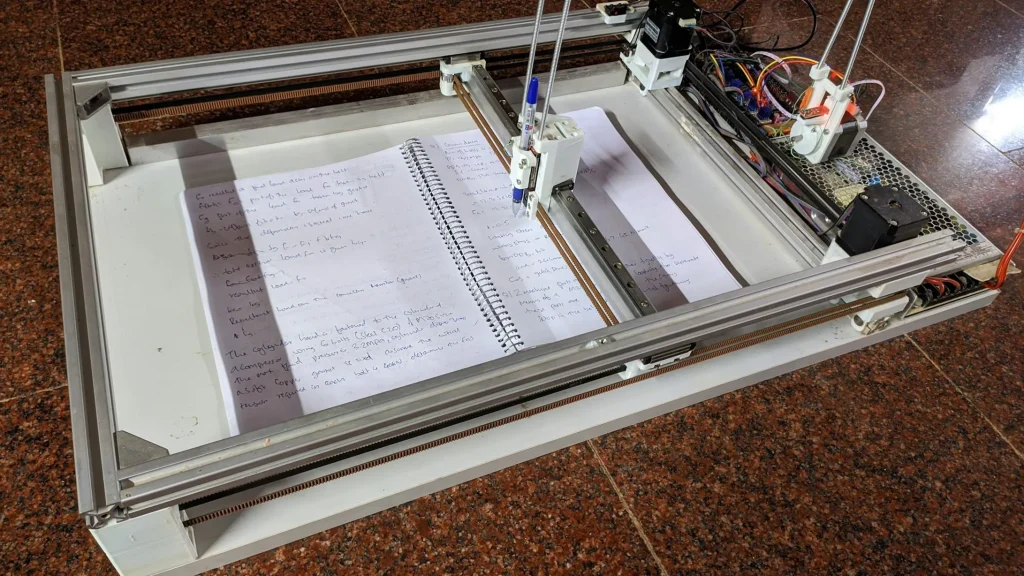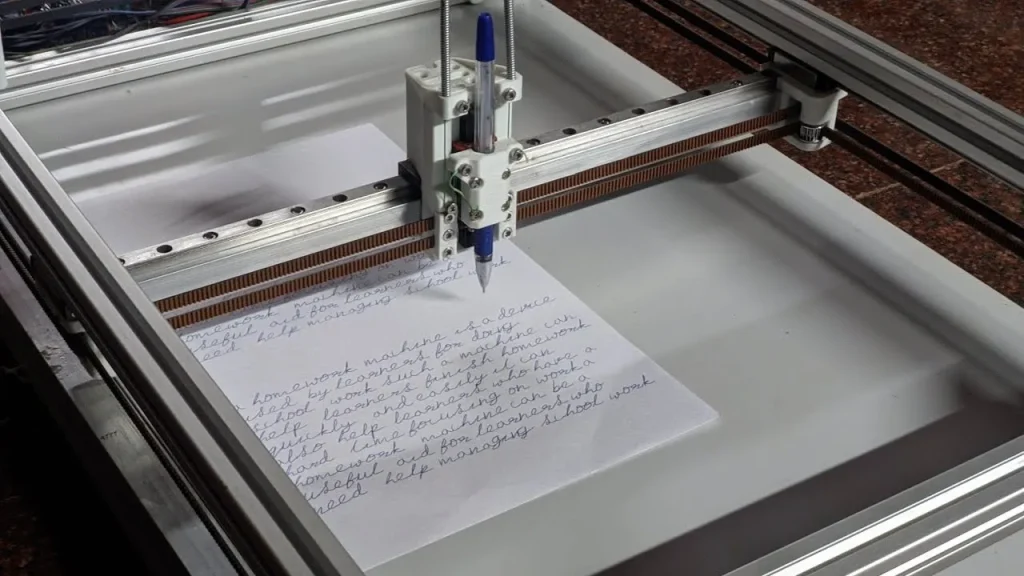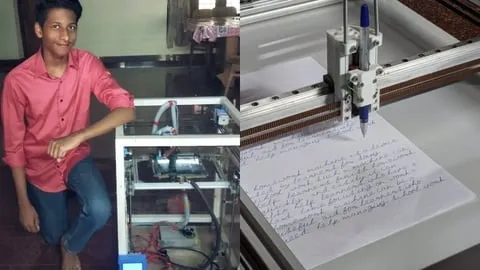Devadath P R, a 22-year-old engineering student from Kerala, has developed a groundbreaking machine that uses Artificial Intelligence (AI) to write homework in the user’s handwriting. This invention has captured significant attention on social media, particularly through a viral 19-second video showcasing the machine’s capabilities. The video, which has accumulated approximately 4.7 million views and over 39,000 likes on X, features the machine seamlessly writing homework and turning pages as needed.

How the AI Machine Works
The AI machine works by first scanning the user’s handwriting to learn their unique writing style. Once the machine has captured the nuances of the user’s handwriting, it replicates this style to write on paper, making the completed homework appear as if it was written by the user themselves. This technology has sparked widespread fascination and discussion online.
Mixed Reactions from Netizens
Reactions to the invention have been varied. Some users have expressed amazement at the technology. One user commented, “That’s revolutionary. India is seriously not for beginners bcuz legends are everywhere.” Others shared similar sentiments about the machine’s innovative nature.

Conversely, there have been concerns and criticisms. One social media user shared their experience with a similar technology, noting that while their son used a 3D printer and ChatGPT to complete school homework, they later realized it was an unethical practice. Another user remarked, “If a student has reached this competency, they don’t need to do homework,” suggesting that the invention might undermine the educational process.
Ethical Concerns and Future Implications
The debate continues as some individuals worry that such technology could encourage dishonesty and hinder the development of essential skills in students. While the AI machine represents a significant technological advancement, it also raises important ethical questions about its impact on learning and education.

In summary, while Devadath P R’s AI machine showcases the potential of technology in transforming traditional tasks, it also highlights the need for careful consideration of the ethical implications and the future of education in an increasingly digital world.
